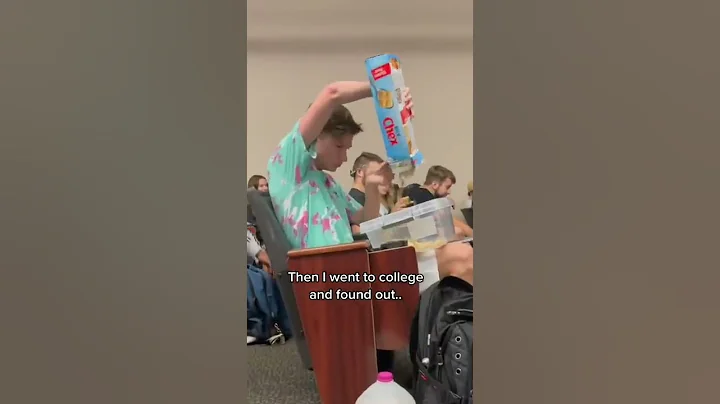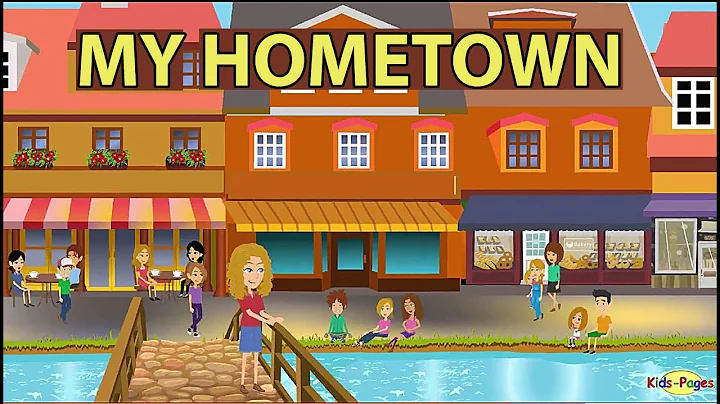Dear Concord 1568 graduates, congratulations to you! Today is one of the few moments in your life when you are so happy that you even shed tears because of it. I once said, what is hometown? Hometown is created by distance. It is a place that I want to leave every day when I am young, and I want to go back every day when I am older. Previously, students spent every day with Xiehe, teachers and classmates. From today on, you will leave more of a shadow to Xiehe, teachers and classmates. When distance appears, hometown also appears. Starting today, Union Medical College is your alma mater and spiritual hometown for you. The teachers and classmates here are part of your spiritual hometown. The further you travel, the clearer your hometown will become. So how far? I might as well say two numbers, one is 50 years and the other is 70 or 80 years.

In the mid-1950s, Tsinghua University dedicated a golden sentence to the country - 50 years of healthy work for the motherland. At the time it was more about physical training, but later it became more than that. I send this sentence to you because you are the protectors who allow more people to work healthily for the motherland for 50 years. This career makes it more likely that you will work healthily for the motherland for 50 years, and live healthily for yourself, your family, and the friends you love for 70, 80 or even more years. How far is
50? Starting today, we can see the year 2072 at a glance. If the future is not clear, let us look back 50 years ago to 1972. At the time when China and the United States were breaking the ice, one of the members of the delegation for Nixon's visit to China was Mr. Grant, the chairman of the United Nations Children's Fund. He accidentally mentioned that he was born in Xiehe. His father is the man (Lan Anson) who once said, "An ounce of prevention is worth a pound of cure." He does not mean that. Concord quickly found all of his birth records, including the tiny footprints, and gave them to him as a gift. You can imagine how touching this is. This small gift suddenly implicated all aspects of the relationship between China and the United States over the past 50 years, including the spirit of Concord. Also in May of this year, Premier Zhou Enlai was diagnosed with cancer . Facing a devastated China, this disease strengthened Zhou Enlai's determination to restore order and allow Deng Xiaoping to return. Therefore, that moment 50 years ago also made us rich today. 50 years is such a long time. Talking about these things, it seems as far away as a long history. So let’s imagine what 50 years will be like from today to 2072?
The first supporting keyword I want to talk about is "increase and stock"
In 1972, China's population was 870 million. Although it was poor, it was very young. At that time, Chinese people had very few cardiovascular diseases and were regarded as a model by the world. The 2021 China Cardiovascular Health and Disease Report released last week shows that more than 2 out of every 5 Chinese people who die will die from cardiovascular disease. What's more important is age. Chinese people were very young at that time, but now the number of people over 60 years old has reached 270 million. This is just the beginning. Imagine the 50 years you will face: around 2029 and 2030, China’s population will reach its peak; around 2053, China’s population over 60 years old will reach its peak, about 480 to 490 million, a scale equivalent to The country ranks third in the world in terms of population; 2073 is the end point of the next 50 years we are talking about, and it is predicted that the population over 80 years old will reach 134 million. At that time, some of you have already entered this group, and more people are beginning to get closer. In the next 50 years, China will always be the only country with the largest elderly population in the world. Never in human history has a country faced the medical challenges posed by a population of 500 million over the age of 60 and a population of 134 million over the age of 80. So the most romantic thing I can imagine is that you will grow old with us; the happiest thing I can imagine is that you will protect us better and healthier as we grow older.
From the founding of the People's Republic of China to the following decades, the biggest challenge faced by China's medical industry is the incremental challenge, which is to reduce the number of serious illnesses and major disabilities in people born. The key is to be able to survive. In 1949, our average life expectancy was only 35 years old, mainly because the neonatal mortality rate was as high as 200 per thousand. With social progress, public health development and the efforts of our predecessors, today the neonatal mortality rate is 5.2‰.Therefore, we have dealt with the incremental challenges very well. But in the next 50 years, we will face huge challenges in population stock. It means living healthy, long, and well. How to prevent all Chinese people from getting sick, to get sick late, to get minor ailments, to treat minor ailments quickly so that they do not turn into chronic diseases, and to effectively control chronic diseases and live healthy lives. This is the responsibility you shoulder in the next 50 years.

The second matching keyword I want to talk about is "reverence and boundaries"
50 years ago, Premier Zhou Enlai was diagnosed with cancer. For a long time, Wu Jieping, an alumnus of our Union Medical College, served as the leader of the premier's medical team. Later, when he became a national leader, he was asked by a reporter during an interview, "How do you view your life as a doctor? What kind of mentality have you always practiced medicine with?" He used one sentence to express what I later saw and read. Many great doctors in China have a common thought, which is "like walking on thin ice when facing an abyss." Behind these eight words is awe.
We can also find counterexamples. In the mid-1970s, there was a widely circulated prediction that medical technology had advanced so rapidly that the threat of infectious diseases to humans would disappear. However, now in the third year of the new crown epidemic, we know how overly optimistic this prediction is. Similarly, when antibiotics achieve great results, no one will think about its resistance .
People who are engaged in this industry and those who have graduated from Union Medical College must be confident, but only confidence based on awe is true confidence, and only then can there be the kind of true seriousness that everyone is most looking forward to. This awe comes precisely from the fact that no matter how advanced medical technology is, the more respect a person needs. technology brings more optimism about the average, and every patient thinks that he is the most miserable and unique person in the world. How will you face this unique situation? Awe is extremely important.
There is another thing that should be discussed. Medical technology has advanced to such an extent that we must think about the boundary issue. When we can cure everything, do we have to cure everything? What should be done and what should not be done? As an animal, humans should accept any discomfort and use their own various responses, including immunity, to make the body healthier. In the past century of medical progress, the number of medical visits has increased significantly, and as humans live longer, they will inevitably suffer more illnesses. Of course you should think about boundaries. Another important challenge for borders comes from cost. The rapid advancement of science and technology and medical technology means that the entire medical cost is expanding rapidly. Almost all countries and every family in the world are facing the cost boundary problem in the process of seeking medical treatment. How should we, as practitioners, think about it? This kind of border? Therefore, awe and boundaries are very important factors that serve as the basis for great medical support.
The third group of keywords is "love and compassion"
The famous philosopher Russell once said: There are three things that support my life, the desire for love, the pursuit of knowledge, and the unstoppable sympathy for human suffering. I also added a fourth sentence myself: I can’t resist the urge to change all things that can be changed. Love should always come first.
A poem by a Taiwanese poet that I particularly like has a profound impact on me: "Love is the only guide." When you don't know how to choose, follow the love in your heart. Love is like sunshine. You should give more of this love to yourself, your friends, your family, your life, and your career. Many people will say, how can we not let doctors give love to patients? I feel that giving love to patients is not necessarily accurate. I hope everyone will be compassionate when facing patients. When I met Master Cheng Yen many years ago, she once said, "Compassion is like the moon." I was very moved. She told the volunteers that compassion should not be as dazzling as the sun, roasting people and giving people a sense of oppression, but should be as gentle and watery as the moon, and more importantly, bring light to passers-by in the dark night.
The greater love that medical workers should have is uncontrollable compassion. cannot require medical workers to be Buddhas every day.They should insist on being professionals and professionals every day, but when occasionally needed, they should be Buddha or moonlight, and they should illuminate the way forward for people in darkness. A doctor can prescribe many different medicines, but he must always prescribe the "prescription" of "hope." Facing many patients who come from despair, even if you have no way to save them, you can still use "hope" as a "prescription." When you can't cure a patient, you can still work hard to treat him, heal a family, heal humanity, and give people hope.
There was once a doctor who was rescuing a child in the emergency room. When he learned that there were four elderly people and the parents of their children kneeling outside, even though he knew that there was no hope for the children, he rescued them for nearly two hours, letting the people next to him use this time to comfort and persuade the six people kneeling outside. . If he begins by saying that the child is dying, the family may quickly collapse psychologically. Doing so is even more healing for a family.
The fourth group of keywords is "healing people, and also healing the world"

I believe all Xiehe people know that the "treatment" everyone talks about is actually treating each unique sick person, and it is a combination of physiology and psychology. Function to heal a whole person. Everyone has heard the story of Bian Que meeting the king. The king asked him, "You three brothers all practice medicine. Who has the best medical skills?" He said that my eldest brother has the best medical skills, my second brother is second, and I am the worst. Wang said, no, everyone knows Bian Que's reputation, but few people talk about the eldest brother and second brother. Bian Que replied that the eldest brother discovered the danger before others got sick, intervened a little, and did not get sick. The second brother quickly intervened when the illness was mild to prevent it from turning into a serious illness. And when the patient was seriously ill, I was sometimes lucky enough to be able to cure him, so I had a pretty good reputation. This is the embodiment of Chinese wisdom in the medical community. Looking back at the battle to defend Wuhan during the COVID-19 epidemic, isn't it just that the big brother, the second brother, and the third brother are working hard at the same time? Everyone wears a mask to isolate. This is the big brother's role when healthy people are not infected. In our Peking Union Medical College, of course, we should mention Academician Wang Chen and his colleagues proposed mobile cabin hospital . Isn’t the makeshift hospital the second brother? Intervene when there are only mild symptoms to prevent more people from being infected. Medical workers from all over the country gathered in Wuhan and Hubei to treat seriously ill patients. Of course, China’s anti-epidemic doctors cannot be simply and mechanically divided into big brother, second brother, and third brother. Each of them is the convergence of big brother, second brother, and third brother. In turn, we are reminded that “an ounce of prevention is worth a pound.” Treatment". We must treat people as a whole, but also the society and the world. Mr. Gu Fangzhou's sugar pill seems to make little noise, but it is "destroying thunder in a silent place", making us the beneficiaries generation after generation. Isn't this a cure for the whole of China?
Welchau, an advocate of German cytopathology and social medicine , believes that medicine can only cure part of the disease, but public health, the environment and the treatment of the world are particularly important. In 1866, he actively participated in the transformation of Berlin's underground pipe network. Please note that it was a doctor who took the initiative to renovate the underground pipe network. After its completion in 1873, the average life expectancy in Berlin increased from 35 years in the 1860s to 50 years in 1900. This is the healing effect of changes in public health and social environment. Academician Wang Chen and many leading doctors have spent a lot of time and energy on tobacco control over the years. This is not simply a cure, but a cure for society and the world. In the past, we often said, "If you don't have a good appearance, you will have a good doctor." In fact, good doctors are trying to find ways to become "good ministers", or to make officials become good ministers, because they are trying to establish a healthy lifestyle and a healthy social environment and order.
The last thing I want to say is "Modern Medicine and China's Contribution"
I personally don't like the conventional division of Chinese medicine and Western medicine. Because before the emergence of modern medicine, Western medicine placed bloodletting and surgery under the management of the Barber Association, and treated many drugs as medicines... But in the past 200 years, modern medicine has developed rapidly (changed medicine). Therefore, the so-called "Western medicine" should be called "modern medicine".What is very important about modern medicine is that it is effective, safe, trusted, believed and shareable. In the same way, the traditional Chinese medicine that we deeply love should not be used to compete with the so-called "Western medicine" that we are talking about now and has actually become a thing of the past. Instead, it is very likely that it contains the potential of modern medicine that can become modern medicine through hard work. Eastern wisdom and Chinese solutions. It should develop and enrich modern medicine for humanity.
In the past 200 years and more, in the progress of modern medicine, the Chinese have left too few traces and monuments. Can we be more optimistic and expect that in the future development of modern medicine, there will be more Chinese traces, Chinese creations, and Chinese monuments? After Tu Youyou's name, there will be more Chinese names, and among them there must be people who came out of Xiehe. Looking back at the past, the development of modern medicine, modern medicine and many technological breakthroughs all come from mix-and-match, cross-border, eternal curiosity, naive and simple belief, and then many creations appeared. Will we have many such medical personnel in the future? I believe there will be. Therefore, this is the time for you to set out to walk in the next 50 years. If you are willing to accept some blessings, then these are the keywords.
At the end of the day, I want to tell you another number. Fifty years ago, in 1972, China's GDP1 exceeded US$100 billion for the first time, which was less than one-tenth of the GDP of the United States. According to predictions, 50 years later in 2072, China's per capita GDP will reach the level of the United States at that time. This is the path China has taken for a hundred years. But happiness is never directly related to these numbers. We need many, many things. At the beginning of the birth of Concordia, the May 4th Movement gave the Chinese people the words science and democracy. We often talk about science and democracy, democracy and science. Later I found the answer in Mr. Russell. He believes that the ranking cannot be wrong. It must be science and then democracy. Without the deep-rooted scientific spirit, democracy may not meet our expectations.
In the next 50 years, I believe that all of you here will not only be practitioners of the scientific spirit of telling the truth, but will also influence more people. Therefore, we should have great enthusiasm for China in the next 50 years. So what to end with? The Chinese ancestors summed up human life into four words - birth, old age, illness and death. Which part of these four words can't be separated from you? So, these three words are, please!
Follow the headline account of "Peking Union Medical College Admissions" to get more exciting information!
This article is reproduced from: Chinese Academy of Medical Sciences News Center


![Arrogant Hometown Video [Official Video] - DayDayNews](https://i.ytimg.com/vi/5MhRnMtYtS8/hq720.jpg?sqp=-oaymwE2CNAFEJQDSFXyq4qpAygIARUAAIhCGAFwAcABBvABAfgB_gmAAtAFigIMCAAQARhfIGUoVDAP&rs=AOn4CLBXUPTY17FL270LbPFYiRa9zgJ2LA)


















